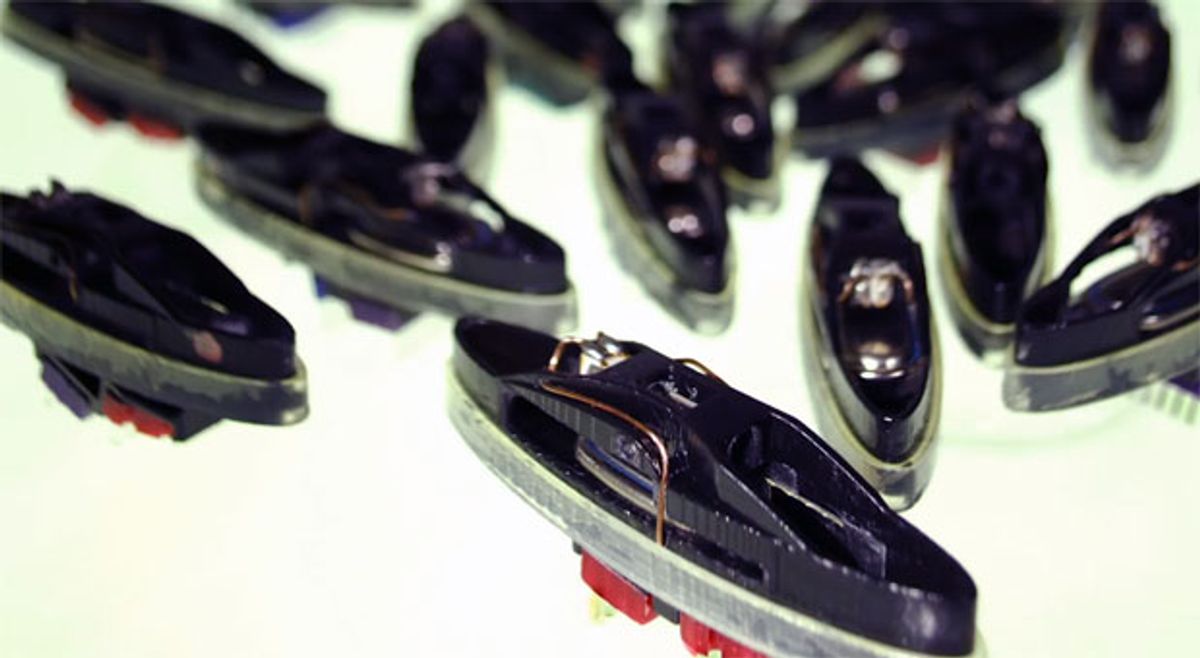Bristlebots are robots without sensors or brains that do things that robots without sensors or brains do. As it turns out, this is a lot more than you might expect, since researchers at Harvard have shown that if you stick enough of them in a small space, they self-organize into swarms.
A Bristlebot consists of nothing more than a toothbrush head (a custom 3D-printed one, in this case) hooked up to a pager vibrating motor and battery. You can build one yourself in five minutes for a couple bucks, making this one of the simplest and cheapest robots in existence. It's a little bit surprising, then, that these little guys are good for some serious research.
Roboticists at Harvard decided to stuff a whole bunch of Bristlebots into a small area to see what happened, and even with no brains or sensors, some intelligent-seeming behavior spontaneously manifested itself:
We show that when Bristle-Bots are confi ned to a limited arena with a soft boundary, increasing the density drives a transition from a disordered and uncoordinated motion to organized collective motion either as a swirling cluster or a collective dynamical stasis. This transition is regulated by a single parameter, the relative magnitude of spinning and walking in a single automaton. We explain this using quantitative experiments and simulations that emphasize the role of the agent shape, environment, and con finement via boundaries. Our study shows how the behavioral repertoire of these physically interacting automatons controlled by one parameter translates into the mechanical intelligence of swarms.
The video below illustrates what happens:
So, as the video says, here's the real question now: if robots without brains can exhibit swarm behavior, does that logically mean that every animal that exhibits swarm behavior (including people) must therefore not have any brains? Yeah, I'm fairly certain that that's the way it's got to work.
[ Paper ] via [ Evil Mad Scientist ]
Evan Ackerman is a senior editor at IEEE Spectrum. Since 2007, he has written over 6,000 articles on robotics and technology. He has a degree in Martian geology and is excellent at playing bagpipes.



